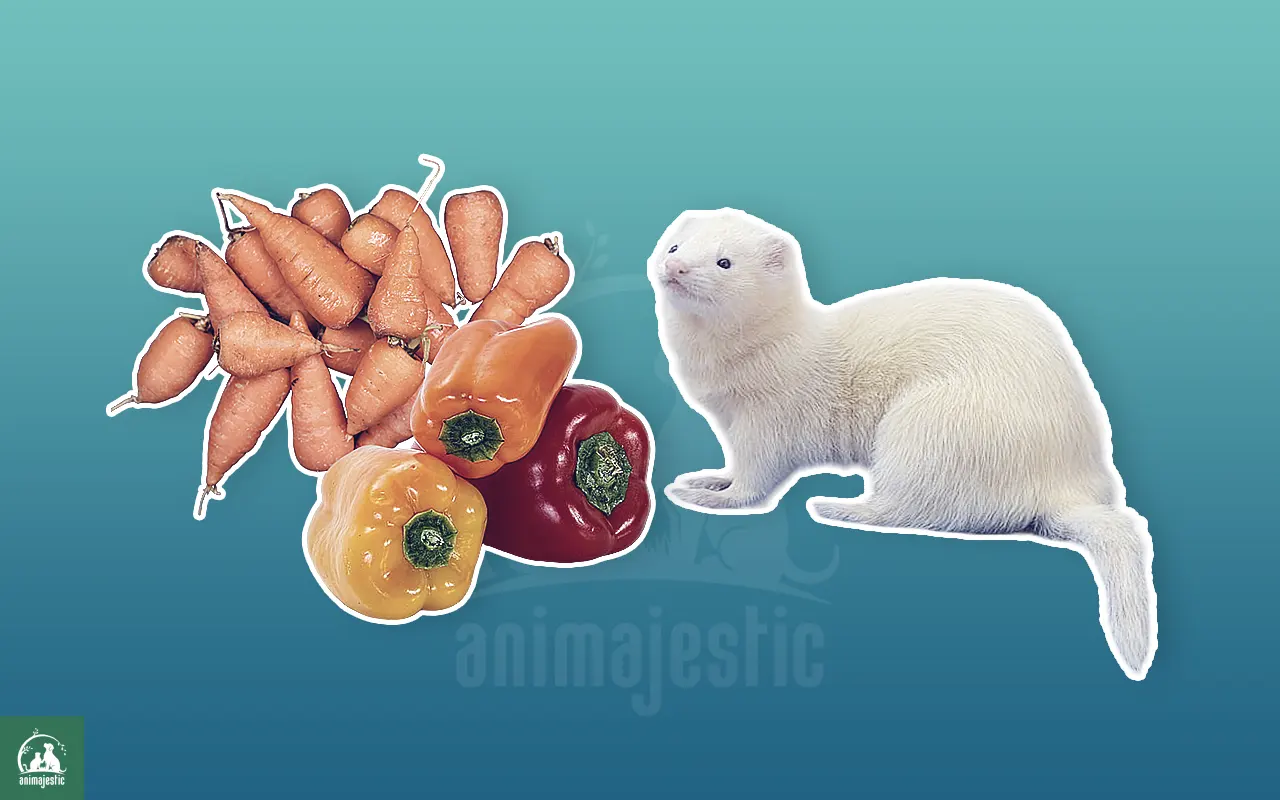When it comes to selecting vegetables for ferrets, there are many varieties you can choose from but not all vegetables can be consumed by your ferrets.
As companion pets, ferrets are known for their playful manner and curious character. These adorable creatures are obligate carnivores, drawing the majority of their diet from animal proteins.
Despite this, adding vegetables to their diet can contribute to an elevated health status, provided these are incorporated with caution and understanding.
Let us get into the details about the types of vegetables suitable for ferret consumption, the non-recommended ones, and essential tips for introducing vegetables to your ferret’s diet.
The Importance of Vegetables in a Ferret’s Diet
Although ferrets are primarily meat-eaters, incorporating vegetables into their diet can provide numerous benefits.
Vegetables can:
- Offer important nutrients such as vitamins, minerals, and fiber, boosting your ferret’s overall health.
- Help maintain a healthy weight and prevent obesity – a common health concern in pet ferrets.
- High-fiber vegetables promote improved digestion and regular bowel movements.
- Improve dental health by promoting chewing and removing plaque.
With these benefits in mind, it’s clear that vegetables can be a valuable addition to your ferret’s diet. However, not all vegetables are created equal, and it’s crucial to know which are safe and beneficial for your ferret.
Therefore, it’s imperative to pick and introduce only those vegetables that they can handle without stress to their system.
Let’s have a deeper look into the world of veggies suitable for your ferret’s dietary plan.
Recommended Vegetables for Ferrets
Here are the best recommendations for their diet, ensuring a happy and healthy companion:
1. Bell Peppers

Bell peppers are incredibly nutrient-dense while keeping a check on sugar levels, making them an exquisite choice for your pet.
They are loaded with vitamins A, C, and E, vital in keeping your ferret in the best health. Also, they carry a considerable amount of fiber, beneficial for their digestive health.
- How to serve: Serve bell peppers in small, bite-sized chunks, either in a raw state or cooked without any additional seasonings.
- Frequency: Serve them 2-3 times per week, keeping watch on their body’s response.
2. Zucchini
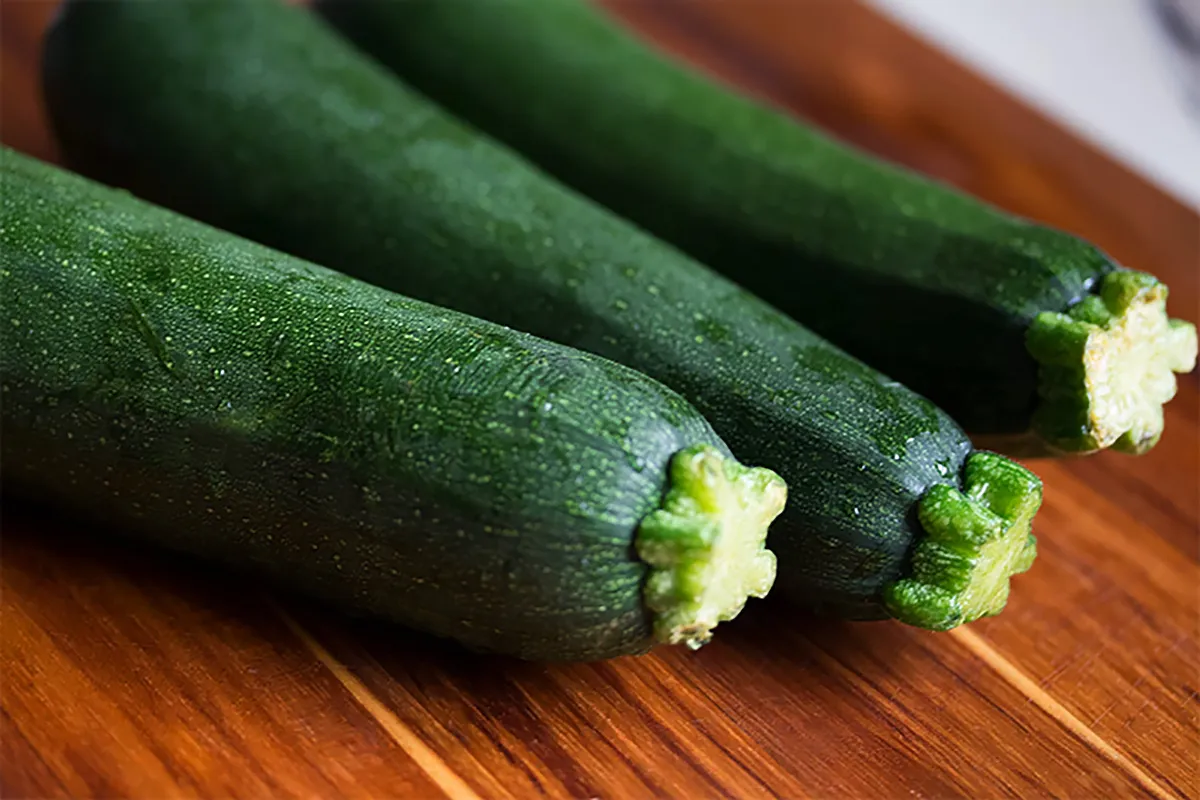
Zucchinis come with copious amounts of vitamins A, C, and K, potassium, and manganese. Apart from their low calorie and sugar content, their high water concentration aids hydration.
- How to serve: These can be served raw, baked, or lightly steamed in bite-sized strips or small pieces.
- Frequency: Offer zucchinis to your ferret 2-3 times per week.
3. Broccoli
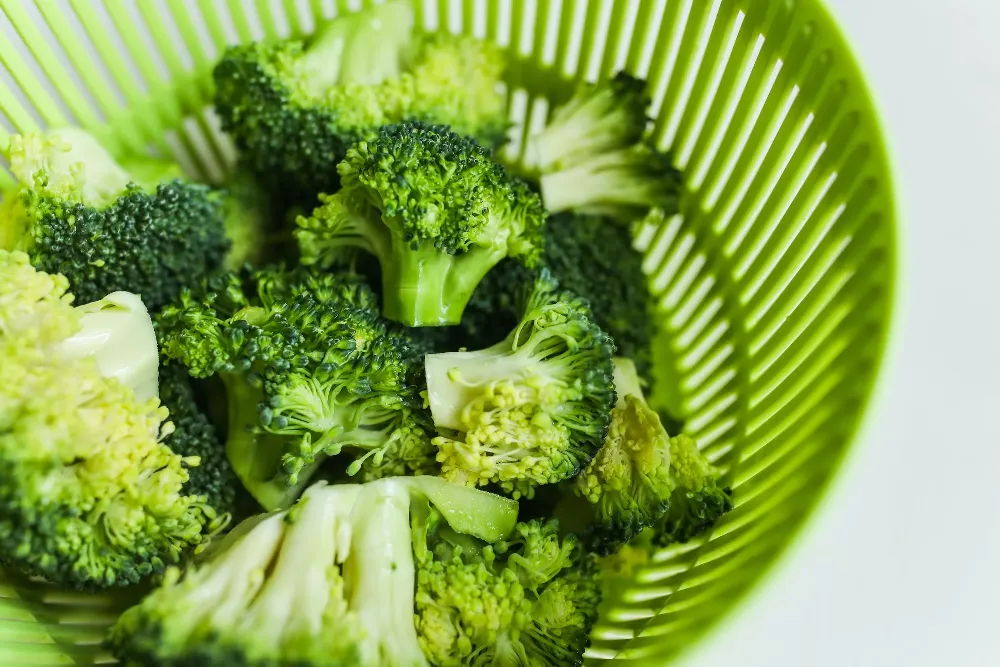
Broccoli is nutrient-packed, with high concentrations of vitamins A, C, and K, and dietary fiber, making it a perfect veggie choice.
- How to serve: Serve broccoli cut into tiny, easily digestible florets, either raw or lightly steamed for easier consumption.
- Frequency: broccoli can be incorporated into your ferret’s meal 2-3 times a week.
4. Green Beans
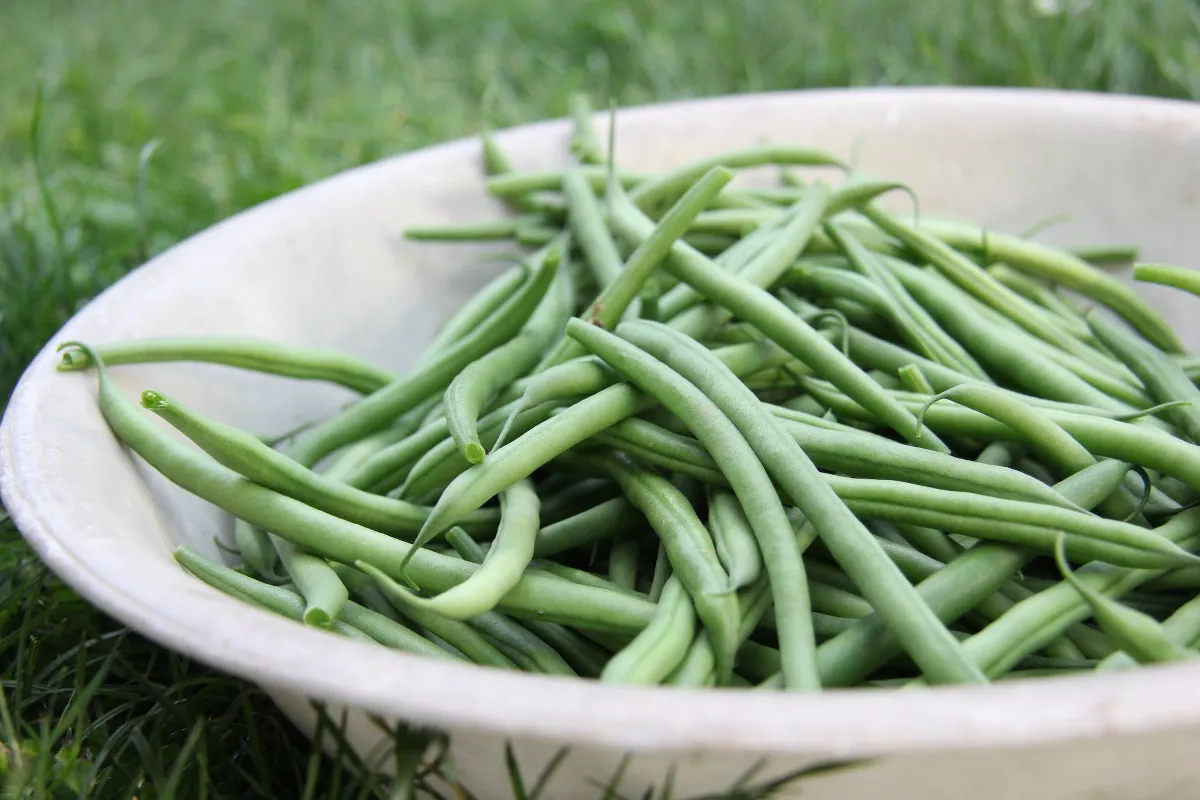
High in vitamins A, C, and K, manganese, and dietary fiber, green beans come with an additional benefit of low sugar content making them a suitable addition to your ferret’s diet.
- How to serve: Remove the ends and slice them small to serve raw or lightly steamed, keeping away from any seasonings.
- Frequency: Include green beans in their diet 2-3 times per week.
5. Carrots
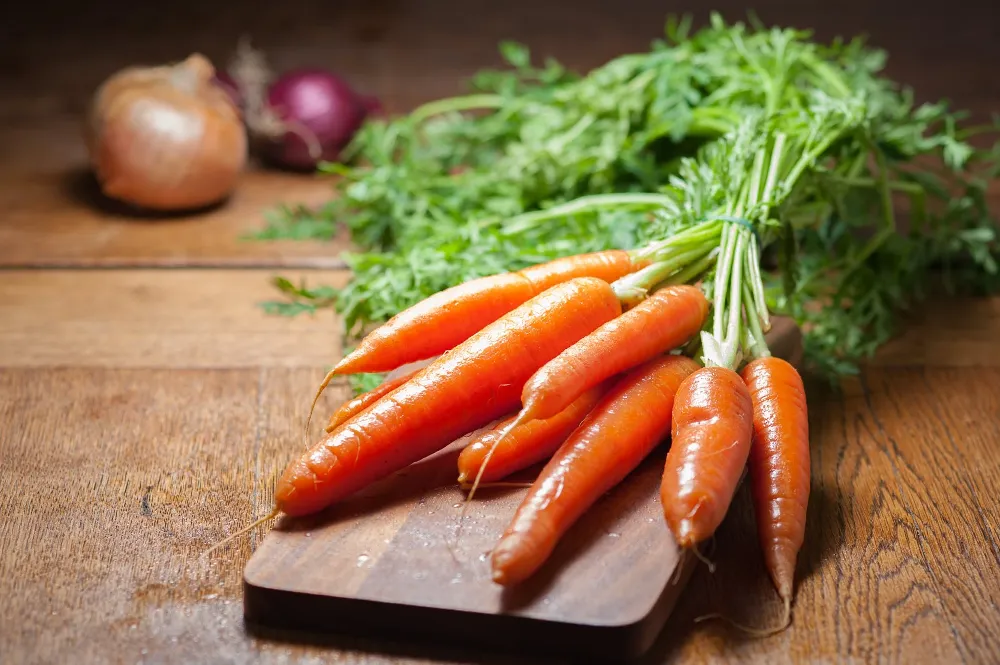
Carrots come with a higher sugar content compared to other recommended vegetables. However, they are rich in vitamin A, beneficial for the eyesight, potassium, and fiber and therefore can be part of your ferret’s dietary regime, albeit in lesser frequency.
- How to serve: Peel off the skin, remove the top, and cut into small bite-sized pieces or thin strips. Carrots can be served raw or cooked without any seasoning.
- Frequency: Given their sugar content, limit carrot consumption to 1-2 times per week.
Vegetables to Avoid
Although numerous vegetables are ideal and beneficial for your ferret, there exist a couple that can be dangerous and even fatal to their health.
- Onions & Garlic: They can bring about anemia, affecting the count of red blood cells in ferrets.
- Avocado: Despite its high nutrient concentration, the elevated fat content can lead to gastrointestinal issues.
- Grapes & Raisins: Refrain from feeding these to your ferret; they’re toxic and may lead to kidney failure.
Safeguard your ferret’s health by keeping a watchful eye on the types of vegetables they consume.
Tips for Introducing Vegetables to a Ferret’s Diet
Integrating vegetables to a primarily meat-based diet might appear challenging, but the change is certainly manageable with a few necessary steps:
- Start with small portions to monitor your pet’s reaction.
- Gradually escalate the quantity of vegetables in their diet.
- Look out for your ferret’s preference – raw, cooked, or steamed.
- Mixing vegetables with your ferret’s favorite meat chunks can make the veggies more appealing.
- Patience is crucial – it may take a while for your ferret to accept the new elements in their meal.
Stay consistent, and soon enough, you’ll find your ferret cherishing the benefits of a balanced diet.
Conclusion
Dietary balance and moderation is the key to maintaining your ferret’s optimal health. A primary meat-based diet, with the introduction of suitable veggies like bell peppers, zucchini, broccoli, green beans, and sparingly, carrots, can boost their overall health and vivacity.
Keep an eye out for any adverse reactions, and consult a vet or nutritionist immediately if any irregularities are observed.
Your journey of raising a healthy ferret involves trials and learning. Embrace this learning phase, for it’s these small steps and continual learning that contribute to your ferret’s long, joyful life vibrating with vitality and playful energy.
Just as our bodies function best with a balanced, nutrient-rich diet, so does your ferret. Infusing their carnivorous diet with vegetable goodness might seem like stepping into unchartered territory, but the outcome of this nutritional balance can truly make a difference.
Here’s to a healthier ferret and even more enjoyable companionship!
